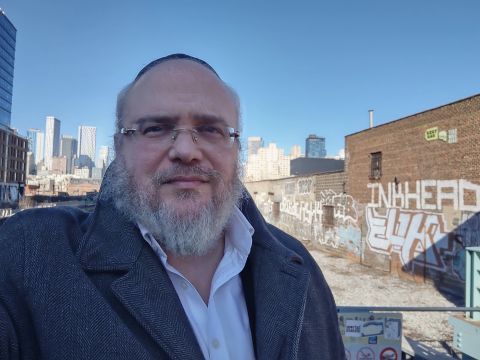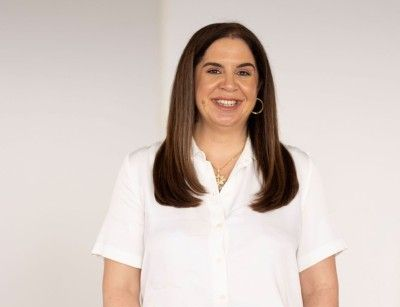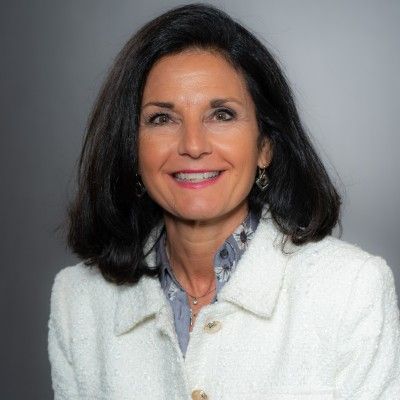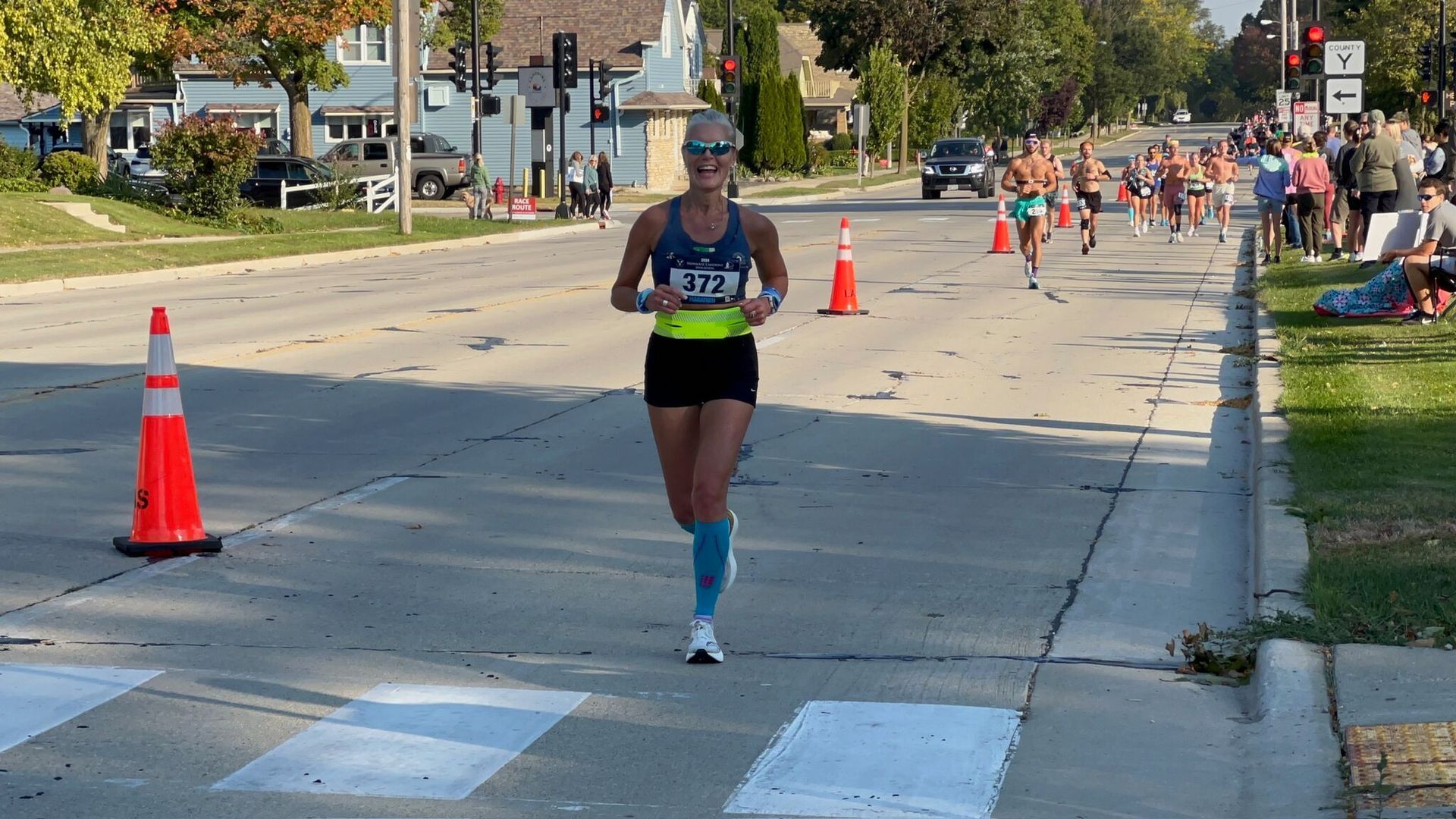Harnessing LinkedIn for Commercial Real Estate Success: Lessons from Levi Blum
Heather Ewing • July 31, 2025

The world of commercial real estate is evolving, and with it, the ways professionals build connections and grow their businesses. Levi Blum’s career journey, shifting from tech sales into the realm of real estate debt financing offers a compelling look at how adaptability and strategic networking can open doors, even in times of uncertainty. His transition during the height of the COVID-19 pandemic wasn’t just a career change; it was a leap of faith grounded in discipline and a sharp focus on long-term value.
Levi began his career in the technology sector, facing the highs and lows of a demanding sales environment. When the pandemic struck, he saw an opening others might have overlooked. With the world on pause, he made the bold decision to step into real estate debt financing and launch his own LLC. Supporting a large family while starting a new business is no small feat, but Levi approached it with clarity and resolve. His story reminds us that challenging moments often reveal hidden opportunities and those willing to act with courage can chart new paths forward.
A defining part of Levi’s journey is how he harnessed LinkedIn to establish himself in a new industry. Rather than waiting for the return of traditional networking, he leaned into digital platforms to communicate his values and expertise. He treated LinkedIn as a tool not just for visibility, but for relationship-building. By sharing consistent, meaningful content and showing up with authenticity, Levi became more than a name. He became a trusted presence in his field. His approach demonstrates how digital storytelling can replace cold calls with real conversations and foster community in a space that once relied heavily on in-person interactions.
Success, for Levi, isn't defined by closing deals alone. It’s about daily progress, discipline, and perspective. He credits much of his growth to a mindset rooted in consistency. Instead of focusing on quick wins, Levi celebrates small achievements and the connections that compound over time. This shift in mindset not only helped him stay motivated but also attracted genuine relationships. His experience underscores that sustainable success is built on steady effort and emotional intelligence, not urgency or pressure.
What drives Levi is not just financial outcomes, but the satisfaction of guiding clients through complex financial decisions. He finds meaning in serving as a bridgem, connecting investors, agents, and lenders in ways that support everyone’s goals. His ability to simplify the financing process and offer tailored guidance makes him more than a service provider. He becomes a partner in his clients' growth. This relational approach sets the foundation for long-term impact and professional fulfillment.
Levi’s story is a valuable reminder that success in commercial real estate and in business more broadly is a long game. Building a network doesn’t happen overnight. It takes intentionality, consistency, and a willingness to show up as your authentic self. In a world where transactions can feel impersonal, Levi proves that meaningful connections are still at the heart of great business. His journey illustrates how real growth happens not just by finding clients, but by being known, trusted, and remembered.
For entrepreneurs and professionals navigating their own career shifts, Levi’s experience offers both inspiration and a practical path forward. The tools are within reach. What matters most is how we use them and the stories we’re willing to tell along the way.
Recent Posts

In a world where financial literacy often takes a backseat to traditional career paths, Mustafa Ladha’s journey stands out as both inspiring and instructive. With a background in medicine and pharmaceuticals, Mustafa made an unexpected yet purposeful pivot into real estate investing and financial education. His story isn’t just about building wealth—it’s about redefining success, reshaping mindsets, and empowering others to take control of their financial futures. Mustafa’s early career in genetics and the pharmaceutical industry was built on a desire to help people, but over time he realized that his true impact could be far greater by educating others about money. What began as a personal pursuit of financial stability turned into a mission to share knowledge and break down barriers to wealth-building. His transition into real estate wasn’t driven by profit alone, it was a deliberate response to the financial confusion many face and a desire to simplify the complex world of investing. Central to Mustafa’s philosophy is the belief that financial success starts in the mind. He challenges the limiting beliefs many carry ideas shaped by family, culture, and fear that often hold people back from pursuing financial freedom. He encourages listeners to develop a wealth-conscious mindset by examining their own stories around money and choosing strategies that align with their goals and values. Real estate may be a vehicle, but the engine is mindset and without it, even the best investment strategies fall short. A recurring insight Mustafa shares is how personal identity can get entangled with financial standing. Many individuals tie their self-worth to net worth, leading to anxiety, shame, or even inaction. Mustafa’s message is clear: money does not define you. By creating judgment-free spaces for financial conversations, people can confront their fears, ask better questions, and find clarity. This emotional awareness is just as vital as technical know-how—and it opens the door for more confident, empowered investors. For those new to investing, the greatest obstacle is often simply not knowing where to begin. Mustafa highlights the danger of the unknown, pointing out that many people are intimidated not because investing is too complex, but because they haven't been shown a clear starting point. He encourages curiosity, community, and collaboration, replacing isolation with support systems that help individuals take practical steps toward their goals. Whether it’s through one-on-one conversations or broader financial education, he positions himself not just as a teacher, but as a partner in the learning process. Financial success is not one-size-fits-all. Mustafa stresses the need for customized strategies that account for each person’s risk tolerance, life stage, and aspirations. What works for one investor may not work for another—and that’s okay. By embracing a more nuanced, inclusive approach to money, individuals can craft financial plans that feel authentic and sustainable. The emphasis is not just on return on investment, but on return on peace of mind. While financial growth is a central theme, Mustafa also speaks to the bigger picture. True fulfillment, he believes, comes from living intentionally, maximizing time, cultivating meaningful relationships, and using wealth as a tool to uplift others. He reminds listeners that money is a means, not an end. The ultimate goal is not just to build a portfolio, but to build a life that feels whole, balanced, and purposeful. Mustafa Ladha’s perspective is a breath of fresh air for those seeking more than just numbers on a balance sheet. His journey bridges science, empathy, and financial intelligence. Proving that with the right mindset and education, anyone can chart a path toward freedom. For those ready to begin or deepen their investment journey, his insights offer both encouragement and direction. Watch the full episode of Heather Ewing: The CRE RUN down here .

Margo Masri’s journey in finance is rooted in something far deeper than spreadsheets or strategy. It stems from a place of personal adversity, emotional strength, and a commitment to changing the way people view money. Her story is a powerful reminder that financial literacy is not just about wealth-building, but about reclaiming control, fostering intention, and building a life aligned with one’s values. Through years of helping others navigate their financial paths, Margo has come to embody the idea that money, when understood and managed with clarity, can be a source of deep empowerment. One of the most defining moments in Margo’s life came during her youth when she and her father were unable to afford a coat she longed for. Rather than allowing the moment to defeat her, she carried it forward as a personal promise to never let money dictate her happiness or limit her sense of possibility. That experience became a quiet catalyst shaping her purpose to help others shift their relationship with money from fear to freedom. A key pillar in Margo’s approach is authenticity. Rather than seeing financial advising as a transactional service, she views it as an opportunity to connect with people on a personal level. For her, it is not about selling solutions but about understanding individual stories and solving real problems. That vulnerability creates trust. It allows people to open up about their financial struggles and goals and lays the groundwork for truly personalized and sustainable progress. Margo emphasizes that achieving financial health starts with a mindset shift. Many people move through life disconnected from their financial decisions, operating on autopilot. By bringing awareness to how emotions and beliefs influence money habits, she helps people move from reactive patterns to intentional planning. She recalls working with a grieving mother and guiding her to reframe her perspective around money, an experience that illustrated how emotional intelligence and financial awareness are deeply connected. With the rise of AI and automated tools, Margo acknowledges the power of technology in streamlining financial tasks. But she is clear that tools alone cannot replace the human qualities essential to sound financial decision-making. Empathy, ethical judgment, and emotional support are critical elements that no algorithm can replicate. Real transformation comes from conversations that blend data with discernment. For Margo, living fully means taking control not just of finances but of time, health, and purpose. Her story shows that personal empowerment starts with understanding one’s values and aligning money decisions to reflect them. She encourages others to break goals into manageable steps, stay grounded in their intentions, and embrace the discomfort that often comes with growth. At its core, her message is clear. With clarity, compassion, and consistency, anyone can turn financial adversity into a powerful force for transformation. Learn more about Margo and how she can help you take control of your financial journey on Episode 51 of Heather Ewing: The C R E RUN down.

In an age where change is the only constant, business leaders and entrepreneurs must develop the skills to adapt, grow, and lead with purpose. I sat down with Denise Graziano, a seasoned expert in leadership and organizational transformation, to explore the tools and mindset required to succeed in a rapidly evolving professional landscape. At the heart of this conversation is the idea that true entrepreneurial success begins with solving real problems. Denise emphasizes the importance of understanding customer pain points and approaching them with empathy. By doing so, businesses can deliver meaningful solutions that offer genuine value, rather than just contributing to the noise. This foundational mindset helps entrepreneurs stay focused and grounded in purpose, even during times of uncertainty or transition. We also explored the challenges individuals face when navigating career shifts or organizational change. Denise introduced the saboteur assessment tool, a method that helps individuals uncover self-sabotaging behaviors that can quietly undermine progress. She shared that recognizing these patterns is often the first step toward overcoming them, allowing professionals to build greater self-awareness and adopt a healthier mindset for long-term growth. Throughout the discussion, Denise drew on her athletic background to underscore the importance of discipline. She likens the structured training required in sports to the kind of focus professionals need in business. This mindset is essential when facing the pressures of leadership and navigating through uncertainty. The discipline to keep moving forward, especially in times of disruption, is what separates leaders who thrive from those who falter. A particularly insightful moment came when Denise and I turned our attention to the shifting dynamics in today’s multi-generational workplace. Denise encourages leaders to embrace the fresh perspectives that Gen Z brings, instead of resisting change. She points out that each generation adds a layer of value, and that bridging traditional methods with innovative thinking can lead to more effective collaboration. As organizations begin integrating more AI and technology, Denise stresses the importance of maintaining a human touch—building trust, authenticity, and connection despite the rise of automation. As we wrapped up, Denise offered a clear perspective on what’s to come. With evolving customer expectations and a younger workforce entering the scene, the next three to five years will demand adaptability, emotional intelligence, and strong leadership. Resilience will be a defining trait, not just in overcoming obstacles, but in spotting opportunities hidden within change. We also highlighted the importance of mental well-being, sharing personal habits that help them recharge and stay centered amidst the noise. You can listen to our full conversation on episode 52 of Heather Ewing: The CRE Rundown. For entrepreneurs and business leaders alike, this episode offers more than just inspiration—it delivers actionable insights for navigating leadership, personal growth, and generational dynamics in the modern workplace.

Running has always been more than a physical activity for me. It became a source of clarity, strength, and self-discovery. What began as a way to manage the stress of launching a career in commercial real estate evolved into a guiding force that helped shape my mindset, work ethic, and approach to business. Looking back, the connection between running and real estate was never just metaphorical. It was real, and it shaped who I became both personally and professionally. I began my journey in commercial real estate in 2015, diving into the brokerage world with a focus on retail and restaurants. The pressure was immediate. I had no book of business, no existing clients, and no safety net. Being fully self-funded meant carrying the weight of uncertainty every day. During those early, high-stress moments, running gave me a sense of control. It cleared my head and helped me sleep. It reminded me to breathe when everything felt overwhelming. As the months passed, I started training for longer distances. Half marathons became a new outlet, offering community and motivation. These races not only improved my physical strength but also brought a deeper sense of fulfillment. I was placing well in my age group, and for the first time in a long time, I felt the satisfaction of immediate, tangible progress. It was a stark contrast to the long timelines and unpredictable nature of real estate deals, but both pursuits required consistency, patience, and perspective. In 2019, I took on my biggest challenge yet—the New York City Marathon. It was a deeply personal moment that pushed me beyond physical boundaries and into emotional reflection. Crossing that finish line felt like closing one chapter and opening another. Around the same time, I took a leap of faith and founded my own company, Abstract Commercial Real Estate. I approached this new venture with the same mindset I had trained with for the marathon—plan carefully, stay adaptable, and keep showing up. Over time, I realized how naturally the lessons from running translated to my career. Monitoring pace, respecting recovery, and building stamina were just as crucial in business as on the road. The people I met through running—family, friends, even strangers—offered the same kind of encouragement and belief that helped me push through hard moments in my career. I learned to recognize discomfort not as a warning sign but as part of the process, whether it was in training or closing a complicated deal. Today, as I prepare for my next marathon in Milan, I am reminded that growth is the only constant. Running taught me to find purpose in the process, not just the outcome. It showed me the power of persistence, the importance of recovery, and the value of showing up even when it’s hard. Whether in real estate or life, the path forward is rarely smooth, but with the right mindset, support, and rhythm, it is always worth running.

John Laine began his real estate journey at just 19 years old when he purchased his first home. That decision became the foundation for a career spanning more than 35 years. Long before "house hacking" became a recognized term, John was already living it, showing how foresight and initiative can shape a successful future. His story invites readers to consider how everyday choices can open doors to unexpected opportunities. During the Great Financial Crisis, John experienced a staggering loss of nearly 80 million dollars. The fallout from this event led to years of reflection and healing. He turned to therapy and found solace in hiking, which became a therapeutic outlet. Spending time in nature offered him clarity and helped him reconnect with himself. This chapter of his life underscores the importance of mental health and the value of taking time to recover and rebuild. With the average age of first-time homebuyers now nearing 38, John is passionate about finding solutions to make homeownership more accessible. He partners with investors and nonprofit organizations to acquire properties at discounted rates and make them available to families in need. His goal is to help people transition from renters to owners, creating not just financial stability but a deeper sense of belonging. John calls his approach "compassionate capitalism." He believes business can be a force for good when guided by empathy and purpose. Helping others build wealth through homeownership is central to his mission. He shares how witnessing families light up at the realization that owning a home is possible reminds him of the deeper meaning behind his work. For John, true success goes beyond financial achievements. After years of personal and professional challenges, he values meaningful connections, time in nature, and moments shared with loved ones. He emphasizes that money is simply a tool, and when used intentionally, it can create lasting, positive change. John Laine’s journey is a powerful reminder that resilience, self-awareness, and compassion can reshape not only a career but an entire community. His commitment to uplifting others through real estate is rooted in lived experience, empathy, and a belief that success is most meaningful when shared. His story encourages us all to take risks, seek balance, and lead with purpose. Watch the full video of episode 49 of Heather Ewing: The CRE RUN down.

I had the opportunity to sit down and talk with Linda Holtz. In this captivating conversation, she took us on her remarkable journey from France to becoming a successful real estate investor in the United States. Her story is one of determination, strategic planning, and embracing new technologies, particularly AI, in the ever-evolving real estate landscape. Linda's focus on multifamily value-add opportunities in Houston, Texas, highlights her expertise in property management and her dedication to providing quality housing while fostering strong investor relations. Linda's journey began in property management, where she honed her skills and developed a passion for real estate investments. Her focus on multifamily properties in the Texas Triangle, including promising markets like Tulsa, Oklahoma, reflects her strategic approach to investment. Linda emphasizes aligning investments with personal values, ensuring quality housing, and building lasting relationships with investors. One of the most intriguing aspects of this conversation is the discussion on the transformative role of AI in real estate. Linda explores how technology can enhance, rather than replace, our unique narratives and stories. As we approach 2025, she anticipates significant opportunities in the multifamily and commercial real estate sectors, where market shifts may finally materialize. Linda's exploration of AI's potential impact on real estate offers listeners a glimpse into the future, where technology and human touch work in harmony to create innovative solutions in property management. Linda also shares her personal growth journey, emphasizing the importance of coaching in overcoming fears and embracing freedom. Her experiences highlight the power of psychological resilience in navigating the complexities of real estate investment. We delved into the role of gratitude and mindfulness in developing a strong mindset, encouraging listeners to appreciate what they have while striving for greater achievements. Linda's belief in living fully, on her own terms, underscores her commitment to time and location freedom, allowing her to connect with loved ones and pursue her passions. We talked about a wealth of insights into strategic planning and personal growth in the real estate industry. Linda's story serves as an inspiration for those looking to align their investments with their personal values, embrace technological advancements, and cultivate a resilient mindset. Whether you're an experienced investor or just starting in the real estate world, Linda's journey provides valuable lessons on how to thrive in a rapidly changing landscape. As we discussed the anticipated market opportunities in 2025, we encourage you to reflect your their investment strategies and consider how AI can play a role in their real estate endeavors. The conversation emphasizes the need for continuous learning and adaptation in an industry that is constantly evolving. Linda's insights into the human aspect of real estate investment, coupled with her expertise in leveraging technology, offer a comprehensive view of what it takes to succeed in this dynamic field. Listen to our full conversation on episode 47 of Heather Ewing: The CRE Rundown. This episode is a must-listen for anyone interested in real estate, technology, and personal growth. Linda Holtz's journey from France to U.S. real estate success is a testament to the power of strategic planning, psychological resilience, and embracing innovation. As you tune in, prepare to be inspired by Linda's story and motivated to take your real estate endeavors to new heights.

In the whirlwind of our busy lives, annual goals can often feel distant and are easy to push to the next day, week or month. Enter the 12 Week Year by Brian Moran—it’s a game-changing approach to achieving your dreams faster by breaking down your goals into shorter, more actionable sprints. What is the 12 Week Year? The principle is simple yet revolutionary: Instead of setting goals for a year, treat every 12 weeks as a year. This means focusing on achieving results within a compressed time frame, which promotes clarity, urgency, and intense focus. It reminds me of marathon training (which has been really effective for me) but instead of 16 weeks, it’s only 12 weeks. Here’s why it works: Shorter Deadlines: Procrastination thrives when we think we have “plenty of time.” With only 12 weeks, you’ll naturally increase your focus and effort. Clearer Goals: You’ll prioritize what matters most, eliminating the clutter of irrelevant tasks. Frequent Feedback: Every week offers an opportunity to reflect and course-correct. How to Get Started Define Your Vision: What do you truly want to accomplish? Whether it’s launching your dream business, completing a fitness milestone, or mastering a new skill, clarity is key. You have to really want it; otherwise, you’ll fizzle out and lose confidence. Set Measurable Goals: Be specific. Instead of “I want to get in shape,” try, “I’ll lose 8 pounds by the end of 12 weeks through consistent workouts and a balanced diet.” Create Weekly Tactics: Break down your goal into weekly actions. For example: Week 1: Plan workouts and prepare meals. Week 2: Attend 4 gym sessions and track meals daily. Track Progress: Every week, evaluate your performance. Did you complete your actions? If not, adjust your approach for the next week or work on the weekend to get caught up. Celebrate Wins: Recognize and reward your achievements each day with recognition and at the end of 12 weeks celebrate in a bigger way. Then, take a week off to clear your mind, reset and then set your sights on the next cycle! Take the Leap Avoid the “all or nothing” attitude. We’re in Week 4 so start today, you will be much further ahead than if you don’t. Every day is a choice and chance to advance your life and career in the direction you dream of. I believe in You. Isn’t it time you believe in You?!
